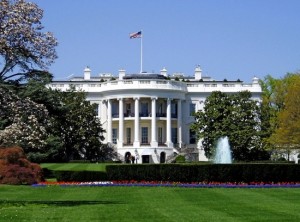 The United States doesn’t get very many great presidents, only about three per century.
The United States doesn’t get very many great presidents, only about three per century.
That’s surprising to most people. But it’s exactly what the American framers wanted.
If we take a deeper look, it actually makes sense.
The American Framers didn’t write the Constitution with the goal of always putting the nation’s top leaders in the president’s office. They didn’t want truly great leaders as Chief Executives except in times of major national crisis where America’s very survival was at stake.
The Framers thought that during times of peace the best leaders could do more for the nation by serving in business, education, community, and other types of leadership.
What many modern Americans don’t realize is that the Founders didn’t consider the position of president of the United States to have very much to do with domestic policies or programs in the United States. This was the role of the states. The president’s job was meant to deal almost exclusively with foreign relations.
This is a really big deal. Just consider the current presidential administration.
When it comes to foreign policy, it’s easy to get the feeling that President Obama just isn’t very interested. He cares deeply about health care and other elements of social justice in the United States, but it seems like his heart just isn’t in his role as commander in chief.
Don’t get me wrong. The president seems to want to do a good job in managing things. He doesn’t want any big problems on his watch, and when forced to deal with Afghanistan, Bin Laden, ISIS, Iraq, Russia, China, etc., he tries to fulfill his duty. He just doesn’t seem all that moved by it.
This is really nothing new.
He ran for president in 2008 on the promise of getting us out of Iraq and closing down Guantanamo. Both were good ideas, in my opinion.
But when facing big, potentially very dangerous threats like Benghazi, Obama’s “line” in Syria, or even a rekindled Russian military and more aggressive China, his lack of emphasis is a major global problem.
It usually seems like he wishes foreign policy would just go away so he could get back to using government to change things in the United States.
The irony is that this view runs exactly the opposite of what the framers intended. They created the presidency to deal with 99 percent foreign relations, only about 1 percent domestic issues. Today the President has it backwards.
In international relations the president’s Constitutional powers include huge responsibilities that literally determine whether the nation maintains its national security. These are outlined in Article II of the U.S. Constitution, and they include the powers to:
- make treaties (with the Senate’s approval)
- appoint ambassadors and other U.S. officials in foreign roles (with the approval of the Senate)
- receive foreign ambassadors and other officials from other nations
- recommend things to Congress that are needed for international affairs
- commission officers of the U.S. military
- and serve as the commander in chief of the military.
This a huge job — much more than a full-time focus for any leader.
In contrast, the framers gave the president the following relatively minor (important, but not time-consuming) domestic Constitutional powers:
- grant pardons
- appoint Judges of the Supreme Court (with the approval of the Senate)
- convene or adjourn Congress (under extraordinary circumstances)
- and ensure that the laws Congress passes are enforced.
That’s it. Read Article II. There’s nothing else in it for the president to do on domestic issues.
Only the last of these is demanding, and the actual work of ensuring that the laws are enforced was meant to be implemented almost exclusively by the states — with the president getting involved rarely and only as a last resort.
The recent failure to follow this Constitutional role of the president has caused at least two major problems.
First, the power of the federal government is being widely used against its own people, because it is implementing domestic policy that is simply outside the bounds of the Constitution.
The White House sees such meddling in the states as its main job. Yes, the Court has ruled that this is acceptable, but in so doing the Court has moved far away from the Constitution.
Second, with all the White House emphasis on domestic issues, many international challenges are given short shrift — or too much of the wrong focus.
The result is recurring mistakes: Too many poorly conceived global interventions, and not enough wise national security leadership.
The saddest thing is that America’s voters haven’t done much about this growing threat to our nation. They could simply vote for a president who believes in following the Constitution — literally, in detail.
If they don’t, our freedoms are in serious danger.
 Oliver DeMille is the New York Times, Wall Street Journal and USA Today bestselling co-author of LeaderShift: A Call for Americans to Finally Stand Up and Lead, the co-founder of the Center for Social Leadership, and a co-creator of TJEd.
Oliver DeMille is the New York Times, Wall Street Journal and USA Today bestselling co-author of LeaderShift: A Call for Americans to Finally Stand Up and Lead, the co-founder of the Center for Social Leadership, and a co-creator of TJEd.
Among many other works, he is the author of A Thomas Jefferson Education: Teaching a Generation of Leaders for the 21st Century, The Coming Aristocracy, and FreedomShift: 3 Choices to Reclaim America’s Destiny.
Oliver is dedicated to promoting freedom through leadership education. He and his wife Rachel are raising their eight children in Cedar City, Utah.






Speak Your Mind
You must be logged in to post a comment.